L-Carnitine is made in the body from amino acids, and is used to release energy from fat. transporting of fatty acids from the cytosol into the mitochondria during the breakdown of lipids (fats) for the generation of metabolic clean energy.
When moments for high levels of energy are needed, L-Carnitine can exceed production by the body and, therefore, L-Carnitine is considered a essential nutrient.

Red meat and dairy products contain the highest percent of L-Carnitine. ground beef, pork, and chicken breast are fantastic sources, other products such as nuts and sunflower seeds contain Carnitine as well. Many Vegeterian can get their source of L-Carnitine from vegetable such as beans, peas, asparagus, and broccoli. amounts can be significantly lower and supplementation may be necessary when comparing to animal products.
L-Carnitine is best known to assist heart-related conditions such as congestive heart failure but it has also been known to help support anemia.
Another benefit of, L-Carnitine is helping in the treatment of type II diabetes and for people with kidney disorders. Our kidneys produce Carnitine and kidney disease has been studied and correlated to l carnitine deficiencies.

